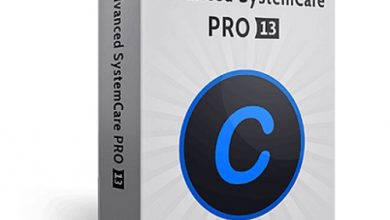What Is the Difference Between Generic Software Product and Custom Software Development?

According to Gartner, the enterprise software market is expected to reach $475 billion in value in 2019. This means that the demand for both custom software development and generic software development is only increasing with time. Although, the demand for both types of software is slated to increase, there are major differences between the two, which we will cover in more detail.
Definition & Uses
To begin with, generic software (off-the-shelf solutions) is software that is readily available to the public and comes with a host of features that are designed to meet general business requirements from office productivity to content management. Off-the-shelf software is aimed to meet the needs of a worldwide audience and a wide range of users. Industry giants like Microsoft and Google offer scalable, advanced, and secure generic solutions to make a business more productive as well as efficient in its management of resources. Product suites like Salesforce, Microsoft Office, and Zoho are highly matured products that offer a high level of functionality, where you have the option to pick the modules that best serve your business.
Custom software development involves commissioning, creating, and supporting a software product for a single business. These solutions are not readily available in the market because they are developed and tailored to the niche requirements of each business they are built for. Custom software is meant to meet the requirements of a single entity and is designed to integrate with all their existing systems and IT infrastructure. Also, it comes with a higher level of functionality as compared to generic solutions because it has been designed exclusively to cater to a single entity’s business requirements and processes.
Scalability
Generic software is often not scalable as it was not designed specifically to meet your business’ demand and growth prospects. Although you can always upgrade your subscription to benefit from more features and functionalities, it is not the same as having a tailor-made product that can scale up as your business grows.
Custom software is highly scalable as it takes into consideration not just your present requirements, but also the future demand for your service or product. You may even have to add on greater features and expand departments as your business grows, which custom software is designed to accommodate.
Integration
In the build versus buy dilemma, integration can be a huge challenge. Generic software development does not accommodate the seamless integration of generic software with other enterprise systems, whether that be crucial finance systems or back-office systems. Choosing generic software may result in severe incompatibilities, which can lead to half-baked or distorted analytics and even throw strategic decisions off-centre.
In comparison, custom software development caters to a unified integration of the software with other enterprise systems. Developers would prepare a blueprint for the custom software development project by taking the existing system into account and making sure that the new software functions blend smoothly with the existing IT ecosystem. Custom software also provides marketers and decision-makers with complete real-time interactions that are not affected by data silos so that the resulting data analytics capabilities give your business a competitive edge.
Generic and custom software are different in many ways. Users have no control over the software specifications and therefore zero influence on the evolution of the product with generic software. On the other hand, custom software development allows the client to take ownership of the specifications, thereby enabling them to implement changes and additional features as they please. Moreover, off-the-shelf software is mass-produced to meet the needs of a huge range of businesses, while custom software is limited to the needs of one business, so that no unnecessary plugins or features find their way into your IT ecosystem. Finally, smooth integrations and improved scalability is easily achieved with custom software, while generic software only offers a limited scope to scale as your business grows and may suffer from severe incompatibilities with your existing IT infrastructure. As you can tell by now, choosing between these two solutions will depend on your budget, requirements, and the nature of your business.




